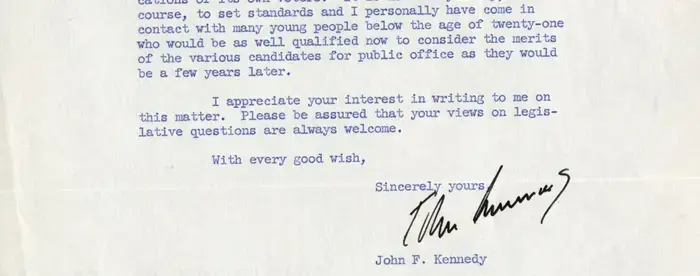Led by: Prof. Barbara Perry (University of Virginia)
Course Number: AMHI 662
Semesters: Summer 2025, Fall 2023, Summer 2020, Spring 2019
Image: Letter from Senator John F. Kennedy about the minimum voting age, 1957 (The Gilder Lehrman Institute, GLC09784)
